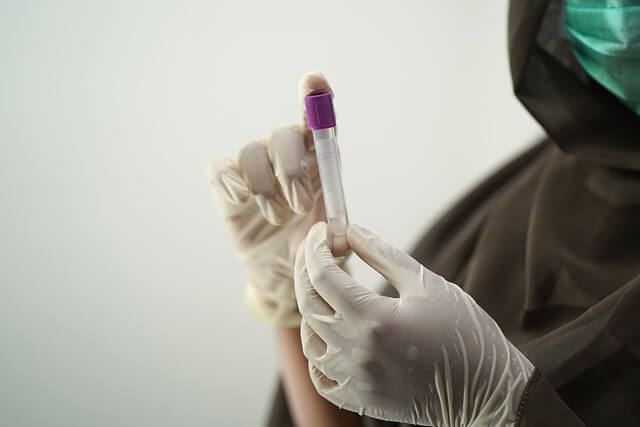New research shows that a simple blood test measuring inflammation and fats can predict a woman’s risk of cardiovascular disease up to three decades in advance. This finding could revolutionize early detection and prevention strategies for heart health.
A Trio of Telltale Markers
Scientists have identified three key indicators in the blood that, when measured together, provide a powerful prediction of future cardiovascular events:
- C-reactive protein (CRP): A marker of inflammation
- Low-density lipoprotein (LDL) cholesterol: Often called “bad” cholesterol
- Lipoprotein(a) or Lp(a): A lipid partly made of LDL
The study, published in the New England Journal of Medicine, followed nearly 28,000 women for 30 years. Researchers found that women with the highest levels of all three markers had more than three times the risk of coronary heart disease compared to those with the lowest levels.
Dr. Paul M. Ridker, study author and director of the Center for Cardiovascular Disease Prevention at Brigham and Women’s Hospital, stated, “We can’t treat what we don’t measure, and we hope these findings move the field closer to identifying even earlier ways to detect and prevent heart disease.”
Why It Matters
This research could lead to more personalized and proactive heart disease prevention. By identifying high-risk individuals decades before symptoms appear, healthcare providers can intervene earlier with lifestyle changes and targeted treatments.
Dr. Ahmed A.K. Hasan, a medical officer at the National Heart, Lung, and Blood Institute, explained the significance: “In recent years, we’ve learned more about how increased levels of inflammation can interact with lipids to compound cardiovascular disease risks. This helps explain why lower levels are often better.”
The Inflammation-Cholesterol Connection
The study sheds light on the complex interplay between inflammation and cholesterol in heart disease development. Immune cells can become activated by excess cholesterol, creating a hyperinflammatory environment where plaque can form, grow, or rupture – leading to cardiovascular events.
Each marker tells part of the story:
- CRP levels were associated with a 70% increased risk
- High LDL cholesterol correlated with a 36% increased risk
- Elevated Lp(a) showed a 33% increased risk
When combined, these markers provide a more comprehensive picture of an individual’s cardiovascular health.
Prevention Remains Key
While this test offers improved risk prediction, the researchers emphasize that primary prevention is still crucial. This includes:
- Regular physical activity
- Heart-healthy diet
- Stress management
- Avoiding tobacco use
For those at higher risk, medications to lower cholesterol or reduce inflammation may be recommended. The study reinforces that actions taken earlier in life can have significant long-term benefits for heart health.
Looking Ahead: Screening and Treatment
Currently, LDL cholesterol screening is routine, but testing for Lp(a) and CRP varies. Some countries recommend universal Lp(a) screening due to its genetic component. In the U.S., testing often depends on individual risk factors or physician discretion.
New treatments targeting these markers are emerging. In 2023, the FDA approved colchicine, an anti-inflammatory medication, to reduce cardiovascular risk in people with atherosclerosis. Researchers continue to explore personalized therapies based on these biomarkers.
While this study focused on women, the researchers believe similar results would likely be found in men. As we gain a deeper understanding of these predictive markers, we move closer to more effective, individualized strategies for preventing heart disease – the leading cause of death worldwide.
Test Your Knowledge
- What are the three blood markers identified in the study as predictors of long-term cardiovascular risk? a) HDL, LDL, and triglycerides b) C-reactive protein, LDL cholesterol, and Lipoprotein(a) c) Hemoglobin A1c, LDL cholesterol, and C-reactive protein
- How much did the highest levels of C-reactive protein increase the associated risk of heart disease? a) 33% b) 36% c) 70%
- What is one reason given for why lower levels of these markers are often better for cardiovascular health? a) They reduce the cost of healthcare b) They interact with lipids to compound cardiovascular disease risks c) They improve the accuracy of blood tests
Answer Key:
- b) C-reactive protein, LDL cholesterol, and Lipoprotein(a)
- c) 70%
- b) They interact with lipids to compound cardiovascular disease risks


